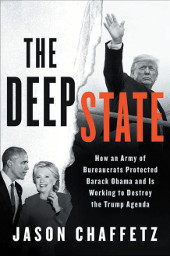
President has good chance to capture voters tired of everlasting, pointless wars.
By Phil Giraldi
Donald Trump is seeking reelection in November based on a clear message that he stands for law and order as related to hostile groups like Black Lives Matter and Antifa, the latter of which he has correctly designated a domestic terrorist organization. As the violence in America’s cities continues, that position is resonating, and it is conceivable that he could win with such a simple message. The Democrats will find this message hard to counter. Nevertheless, it is also not too late for the president to appeal to another constituency, the conservatives and liberals alike who believe that part of the American malaise relates to overextension in what has become a perpetual series of military conflicts overseas. To be sure, President Trump has sent out a number of ambiguous tweets, and it would be best for him to try to make the message both direct and transparent.
To be sure, Trump should be given credit for being the first president since Dwight D. Eisenhower to directly challenge the “Military Industrial Complex,” the central component of what has come to be known as the Deep State. While campaigning in 2016, he repeatedly described America’s involvement in various Asian conflicts as “bad wars.” More recently he has again picked up on that theme, attacking Democratic candidate Joe Biden for his record of having approved of various American military interventions over his 47-yearlong political career, particularly by sending “our youth to fight in these crazy endless wars” as vice president. While some of those comments could be taken as normal political rhetoric, Trump then shook up the establishment when he voiced his view that top Pentagon military officers and civilian officials “want to do nothing but fight wars so that all of those wonderful companies that make the bombs, that make the planes and everything else, stay happy.”
He might have added that there exists the notorious revolving door whereby senior officers “retire” and move on to the boards of General Dynamics, Raytheon, and Lockheed, where they are expected to lobby their former colleagues to fatten the defense spending pot even more.
President Trump, who has himself increased military spending, has not ended any wars but, to his credit, he has not started any, either. He is the first president to be so restrained since President Jimmy Carter. That does not mean that he has not engaged in what one might consider to be acts of war, to include devastating sanctions and other pressure on countries like Venezuela, Syria, and Iran that are intended to bring about regime change when the starving people rise up in rebellion against their leaders. And there have also been major missteps that could have led to wider conflicts, including misreading of the North Korean leadership’s intentions, missile strikes on Syria based on fabricated intelligence, and the assassination of Iranian Gen. Qasem Soleimani and nine other Iraqi officials at the Baghdad Airport.
Against that, Donald Trump has called for troop reductions in Germany, Syria, Iraq, and Afghanistan, though the devil is in the details. The Iraq reduction in force (RIF) is currently only on paper, while Afghanistan, where troop levels were actually increased by Trump, has been subject to repeated delays due to pushback from the Pentagon and Congress. Syria turned out to be a redeployment to “protect oil fields” more than a reduction. Now there are reports that more troops and Bradley fighting vehicles will be sent to the country to counter “Russian aggression.” And Germany is particularly tricky. A 12,000 RIF of the more than 35,000 troops currently in the country involves sending some soldiers to other bases in Italy and Poland, so the number of soldiers that will actually return to the U.S. remains unclear. Also, moving soldiers is relatively easy, but the removal of heavy equipment and the reordering of support networks that operate across international borders is much more complicated. America’s major military hospitals serving Europe, the Near East, and Africa are all located in Germany, as are other logistical support mechanisms.
It is safe to say that the reduction in forces, if it is indeed being seriously pursued, will be very much a work in progress at election time, which may be intentional to appeal to those opposed to the overseas wars while at the same time keeping options open for whoever becomes president. One can plausibly argue that Donald Trump won in 2016 based on that considerable part of the electorate which agreed with his sentiments about the “endless wars” and, as the Democrats seem to be moving in a different direction, that appeal might well work again.
Trump is also playing the peacemaker card for what it’s worth, asserting a breakthrough in the Arab-Israeli conflict due to his brokering a modus vivendi between Israel and two Gulf States, namely the United Arab Emirates (UAE) and Bahrain. The agreement, which was signed in a gala ceremony in the White House, is more smoke than fire, as the Arab states have virtually no military capabilities and they have never been openly hostile to Israel. The UAE has, in fact, long had semi-secret arrangements with the Israeli government, though now that relations have been regularized, trade and travel will be conducted openly. [See page 28 of this issue of AFP for more.—Ed.]
The poor Palestinians, who were not part of the deal, are inevitably the complete losers from the arrangement and the United States will wind up picking up the tab, with Israel now seeking $8 billion in new weapons from Washington to maintain its military superiority. The UAE and Bahrain will be buying the F-35 air superiority airplane, though it will not have some of the electronic features that the Israeli counterparts will have. Israel will expect to receive the planes for free, with Congress and the White House likely to oblige.
But Donald Trump will claim to be a peacemaker, which is exactly how the agreement is being played, while the pro-Israel media is even going along with the charade. Without a doubt, it will be a positive in the election and will attract some votes to the GOP side.
President Trump has a lot of good cards to play over the next few weeks, but he has to curb his own impulsiveness and his tendency to speak beyond his script. Last week’s revelation that the president wanted to assassinate Syrian President Bashar al-Assad but was talked out of it by Secretary of Defense Jim

Mattis suggests that his view of foreign policy continues to be transactional with little understanding that one misstep generates numerous consequences, most of which are bad. Likewise, current efforts to unilaterally enforce sanctions against Iran can only lead to trouble. But if the president can avoid shooting himself in the foot, he has an excellent chance to capture voters tired of America’s everlasting and increasingly pointless wars.
Philip Giraldi is a former CIA counter-terrorism specialist and military intelligence officer and a columnist and television commentator. He is also the executive director of the Council for the National Interest. His other articles appear on the website of “The Unz Review.”







You left out the part about withdrawing troops that were protecting our staunch allies, the Kurdish people, who sacrificed themselves for US causes …and then Trump left them to be slaughtered and displaced by the Turks.